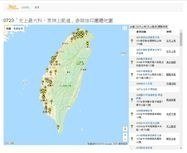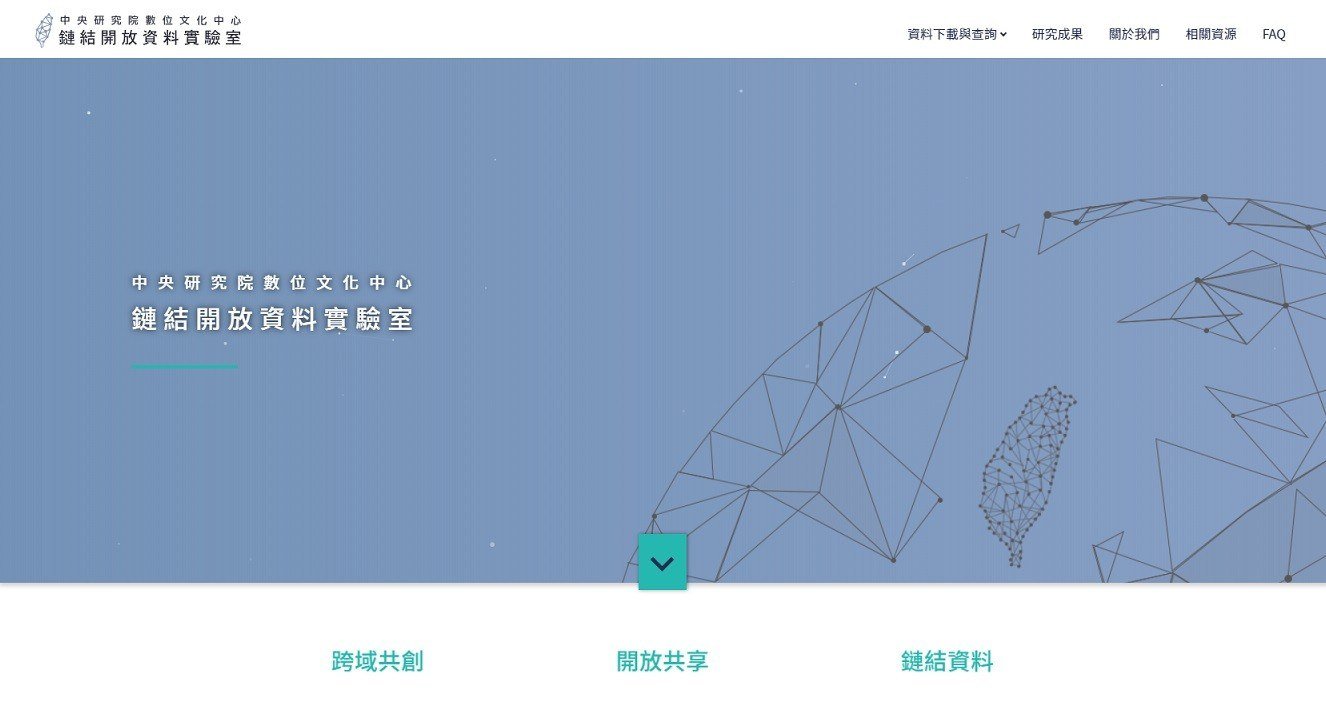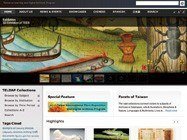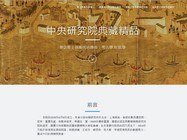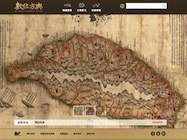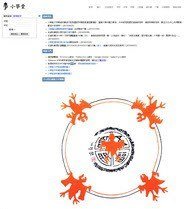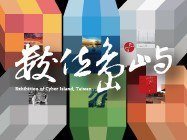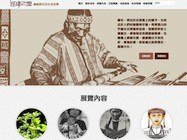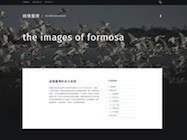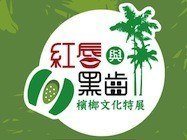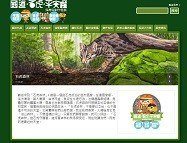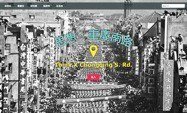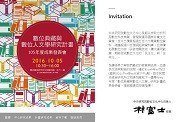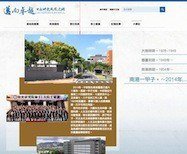Tools & Databases
|
|
||
|---|---|---|
Digital Humanities Research PlatformThis cloud-based platform empowers individual research and teamwork by integrating computational techniques and textual analysis. The user can upload texts and authority files to the platform, join research communities dedicated to different topics, and contribute to the textual corpus by importing texts by deciding whether he or she wants to share with other people. Computational tools include automatic markup, frequency statistics, text comparison, associative analysis, spatial-temporal presentation, and data visualization. This platform specializes mostly in Chinese scripts, with a view to amplify the methodology in history, literature, linguistics, archeology, and other fields that may involve quantitative textual analysis.
|
||
GIS for Religious Landscape in TaiwanThis program innovates fieldwork methodology in religious studies. It combines GIS, historical literature, fieldwork, and the collaboration between experts and locals. It maps out the religious sites (incl. Buddhism, Daosim, Catholic faith, Protestant churches, Islam, folk religions etc.) in Taiwan and explores the landscape of religions both in synchronic and diachronic terms. Keyword categories include name, address, religion, building type to facilitate queries. |
||
Raging Gods on the Ketagalan BoulevardThe chart shows the geographical provenance of protesters in a major rally against the incense ban bill in Taipei in 2017. The rally saw a massive procession of pilgrims escorting religious icons in front of the Office of the President.
|
||
LODLab, ASCDCWe are running the major organization that applies Linked Open Data to the management of digitized cultural assets in Taiwan. Officially launched in 2018, LODLab, ASCDC deploys Europeana Data Model and BIBFRAME in its LOD conversion. Over 50,000 items of 5-star data has been set up, and the datasets are available for semantic query and RDF download. In 2017 our project “Fishing in the Data Ocean” cut into the top 5 finalists of Technical Challenge at the 4th Linked Open Data in Libraries, Archives & Museums (LODLAM) Summit. We hope to lengthen this momentum to bridge Taiwan’s digital cultural resources with the world by crossing the boundaries of language and geography.
|
||
Open MuseumThis digital museum combines functions for collection, curation, and display, and serves as a platform to translate and showcase Academia Sinica’s research. Through open licensing methods, it gathers open resources across international borders, and presents valuable archives belonging to organizations and private collectors. By developing various presentation tools and modules, it provides an environment adaptable to different multimedia narratives, in service of digital exhibition. |
||
Digital Archives of PingtungThe Open Museum’s first full-scale online exhibit highlights the county’s local history, chorography journals, photographs, specimens and objects – the digital collection are creative commons that can be freely accessed and used. The photo gallery brings the visitor back to the Pingtung in days of yore.
|
||
Taiwan Film Open MuseumThis webpage showcases the wealth of materials related to films and film figures that have been rescued, restored, and studied by the Taiwan Film & Audiovisual Institute over many years. Its initial collections focus on 1955-1964 Taiwanese language films. The site features ongoing publication of digital exhibits telling fascinating behind-the-scenes stories of films, cast and crew, theaters, film technology, and more.
|
||
The Biodiversity Digital MuseumThis webpage features popular science exhibits and collections devoted to special topics, putting a spotlight on the Biodiversity Research Center’s amazing research and rich specimen collections.
|
||
Museum of the Institute of History and Philology, Academia Sinica on the Open MuseumCurrently showcasing over 70,000 Taiwanese and Chinese archaeological entries and Ming-Qing official archive documents, this webpage features ongoing publication of digital exhibits in various styles, utilizing different perspectives and subjects to introduce the rich collections of the Institute of History and Philology.
|
||
Deng Yu Shian Digital ArchivesThis is the only digital archive in Taiwan dedicated to the life and work of Deng Yu-shian, known as the “father of Taiwanese folk songs.” The site contains Deng’s photographs, musical score manuscripts, and different versions of musical recordings ranging from shellac discs to the latest midi adaptation.
|
||
Taipei Chinese Center, International PEN on the Open MuseumThis webpage currently showcases nearly 700 items, mainly images of Taipei Chinese Center members and activities, publication covers, and manuscripts and letters from the organization’s presidents and associated figures. In addition, the “90/60 Years of PEN from China to Taiwan: A Retrospect” exhibit features photos of related figures and activities, and a chronology, providing a glimpse into how the Taipei Chinese Center has encouraged investment and success in Taiwanese literature.
|
||
Taiwan Music Institute on the Open MuseumThis webpage allows visitors to explore huge archives related to Taiwanese musical composers and works through its “Musical Culture Map” and “Social Network Analysis” functions, and features several exhibits acquainting visitors with the stories behind the collections and with important events in Taiwanese musical history.
|
||
Taipei National University of the Arts on the Open MuseumThrough the organization and publication of curated exhibits, feature articles, historical school records, and works produced by students and faculty, this webpage showcases Taipei National University of the Arts’ important research, education, exhibitions, and social participation in the field of art.
|
||
Digital Taiwan - Culture & NatureThis search platform is a multilingual database portal constructed by the Taiwan e-Learning and Digital Archives Program. It integrates 5.6 million items preserved in over 760 sites accumulated from different disciplines and different institutes throughout Taiwan’s national digitization projects over a decade. The subjects include: archaeology, rare books and ancient documents, rubbings, geology and architecture etc. All the data are accessible via the union catalog.
|
||
Academia Sinica Digital ArchivesThe archives have integrated the Academia Sinica’s over 1.28 million precious digital resources and 164 websites, providing the ability to conveniently search across multiple databases. It serves as a threshold for the general public to enter into the world of digital archives, as well as the foundation for academic research and many further applications. The archive also gathers many popular science articles to bring users into closer contact with specialized knowledge.
|
||
Academia Sinica Digital ResourcesThe website integrates the results of digital projects from various institutes at Academia Sinica, which includes articles, digital resources, creative gallery, exhibitions, technical services, and authorization information. Through this channel, the digital resources of Academia Sinica can be introduced to the academic world and the general public as a whole, which is expected to raise the public's knowledge and application of the digital archives.
|
||
Academia Sinica Collection HighlightsThis website was created based on the contents of our book, Academia Sinica Digital Collection Highlights Catalog. Its objective is to utilize digital technology to lessen the urban-rural gap, and allow the public to draw on diverse popular science knowledge and academic research findings. We hope that through easier online browsing, people from all walks of society may now learn and become more familiar with the appearance and history of these cultural artifacts previously used for academic research.
|
||
Reading Digital AtlasThis website collects Ming-Qing Dynasty atlases from catalogs of the Library of Congress and the British Library, with analyses provided by National Palace Museum researcher Lin Tian-Ren. Some records are viewable in English with a link to the entry in the Library of Congress database. This website can be viewed in tandem with the physical catalog, Reading Imperial Cartography – Ming-Qing Historical Maps in the Library of Congress (Academia Sinica, 2013) and Reading Antique Cartography: Historical Chinese Maps in the British Library (Academia Sinica, 2015).
|
||
Xiaoxuetang Wenzixue DatabaseThis collection consists of more than 220,000 Chinese characters, ranging from oracle bone scripts, bronze inscriptions and texts surviving from the Waring States Period (c. 5th century BC ~ 221 BC). It contains more than 1.34 million phonetic data across the ancient, medieval, and modern periods, as well as more than 360,000 citations of dictionary entry. The straightforward presentation of the evolution of Chinese characters on this site serves as an important reference for scholars in Chinese studies from all over the world. It has reached over 10,000,000 page views so far.
|
||
Digital Resources for Sinology Studies in TaiwanThis website provides references and links for researchers, research groups, and libraries in fields related to "Sinology Studies" and "Taiwan Studies," both domestic and international. The contents are curated from websites under the "Taiwan e-Learning and Digital Archives Program." Listings are sorted into 8 categories: Archives, Full-text Databases, Anthropology, Rare Books, Rubbings, Art & Sounds, Maps, and Others. Each listing includes the website name, web address, and descriptions in Chinese and English.
|
||
Cyber Island"Cyber Island" was born in 2006 to record and preserve a variety of images, in hopes of presenting a more complete portrait of Taiwan, and to act as a window for the world to come into contact with Taiwanese images. Renowned photographers, cultural history studios, smaller private collections, and individuals interested in photography were gathered from all over, under a Creative Commons license, to jointly construct a jigsaw puzzle of Taiwanese images belonging to the whole population, presenting the diverse faces of Taiwan.
|
||
Taiwan Encyclopedia of LifeIn 2011, Academia Sinica and the Forestry Bureau cooperated to launch the Taiwan Encyclopedia of Life, promoting sustainability and education for biodiversity conservation. Gathering all pertinent information for each species on its own webpage, the Encyclopedia has now recorded data for over one third of known species in Taiwan. This site is a partner in the international Encyclopedia of Life project, showcasing the beauty of Taiwan's biodiversity. All information is available for use under a Creative Commons license.
|
||
The Fish Database of Taiwan3,199 species of fish of Taiwan can be found in this database, which provides general description, real-life pictures and specimens, skeleton radiography and genetic codes. The zoological nomenclature will direct you to relevant information on Fishbase. This database also has sections dedicated to research findings and popular science, including Seafood Guide Taiwan supporting safe and sustainable seafood consumption.
|
||
ASCDC E-cardsThis platform offers a selection of beautiful images from Cyber Island. You are free to send them via email, LINE or Facebook -- share your thoughts and seasonal greetings across the distance within a click. Since January 2019, the website now has a DIY space where you can create your own greeting card by uploading images and drafting notes. It is also connected to Cyber Island’s project of “Hello, Taiwan” to draw on exquisite photos from all parts of Taiwan.
|
||
| Exhibits | ||
Starting out from 23.5°N: Chen Cheng-PoThis website is a look back on the marvelous life of Chen Cheng-Po, through ten chapters that visualize data gathered from his works, letters, photographs, newspaper clippings, and personal collections. Integrating relevant research findings with information technology, this website utilizes data from the "Chen Cheng-Po Paintings and Documents" digital collection, which was established as a collaboration between the Academia Sinica Institute of Taiwan History, the Chiayi City Cultural Affairs Bureau, and the Chen Cheng-Po Cultural Foundation.
|
||
In Retrospect: Post-War Student Activism in TaiwanAs part of the attempt to celebrate the 20th anniversary of the founding of Institute of Sociology at Academia Sinica, this exhibition narrates in a chronological order the participation of students in political changes and social issues so as to present the role of student activism and its influences in the post-WWII development of political democratization and social reform in Taiwan.
|
||
Between Warp and Woof – A Special Exhibit on Weaving the Life Stories of AboriginalsThis exhibit interweaves the life histories and the weaving culture of aboriginal women, following the threads of tradition and custom among the Pan-Atayal (Atayal, Taroko, Seediq), Paiwan, Kavalan, Pan-Siraya peoples. This exhibit utilizes virtual collections, digital technology, weaving artifacts, and physical costumes to allow audiences to step into the world of aboriginal weaving.
|
||
The Images of Formosa: Campus Tour Exhibit of Digital Archived PhotographsThis exhibition was co-organized by the team of Cyber Island and Aaeon Foundation. They worked in collaboration with Ren-Mei Elementary School in Taichung City to design courses by incorporating elements of the exhibition into interdisciplinary courses and to create well-established teaching materials and lesson plans. By doing so, they offered guidance to students to look at various aspects of Taiwan through different lenses so as to improve their self-learning skills. It was hoped that, through the touring exhibition, those lesson plans could be introduced to elementary schools in rural Chiayi to help teachers gradually advance their teaching skills and eventually enhance the quality of both teaching and learning.
|
||
Red Lips and Black Teeth: A Special Exhibition on Betel Nut CultureThe custom of chewing betel nuts has lasted for thousands of years, encompassing the inhabitants of Taiwan and southern China. Betel nuts have been used, not only as food or as gifts at social occasions and weddings, but also as treatment for illness, as safeguard against disease, or even as religious offerings or as charms for practicing witchcraft. This exhibit illustrates the different faces of the "betel nut," giving all visitors a more comprehensive understanding of the betel-nut and its cultural implications.
|
||
Patrols of Royal LordsThis virtual exhibit centers on the "King Boat" welcoming and send-off ceremony in Wang Yeh folk religion. Four cameramen – Taiwanese folk religion and custom researcher Huang Wen-bo, veteran photojournalist Yang Jin-huang (Yangphoto), Yanxiang Culture and History Studio director Wang Su-man, and Duofuxuan Culture and History Picture Studio owner Chen Ding-lin – were invited to contribute to the photo collection of Cyber Island by providing pictures of the King Boat ceremony.
|
||
The National Freeway • Leopard Cats • Turtle Shell-ters – A Conservation and Artwork ExhibitIn 2014, a group of creators and individuals concerned about leopard cat conservation launched the "Foothills Ecosystem Series: Special Exhibition on the Conservation and Artwork of Leopard Cat Forests." They hoped to promote public awareness and appreciation for leopard cat conservation by moving people's hearts with beautiful artwork. All images collected through the exhibit are on display on this website. At the beginning of 2015, the webpage also adopted the Chinese box turtle and the rehabilitation of the National Freeway foothills ecosystem as additional subjects.
|
||
Think X Chongqing S. Rd.Chongqing South Road in Taipei is Taiwan's political and economic lifeline as many governmental agencies are located here, but it was also once a hub of book trade and literary gatherings. The exhibit Think X Chongqing S. Rd. was held successively at Taipei International Book Exhibition, National Taiwan Library, National Taiwan University, and Songshan Cultural and Creative Park. By displaying images, artifacts, old books, etc., the exhibit evoked the charming time when bookstores prospered along Chongqing South Road. Available online are some of the precious historical photographs.
|
||
| Conferences | ||
Seminar on "Knowledge Organization and Cultural Heritage: Perspectives of Semantic Web"In the 21st century Web 3.0 era, the question of how to promote, utilize, and preserve digital cultural assets, by means of semantically annotated knowledge organization systems combined with methodology and practice research, has in recent years become an important issue for research fields related to libraries, archives, and museums. This seminar introduces the newest research directions and developments from Taiwan and mainland China, promoting scholarly exchange. Real-life cases are used to investigate this issue’s many facets.
|
||
Reflections on COVID-19 CultureRapidly responding to the needs of modern society, this website gathers the work of 18 humanities and social science scholars answering the call of Paul R. Katz, Distinguished Research Fellow at the Institute of Modern History, to re-examine the many changes brought about by the pandemic, and attempt to utilize historical research to seek various ways of handling the situation. The website showcases aspects of research conducted by Academia Sinica beyond coronavirus testing and vaccine development.
|
||
The Digital DigestThe Digital Digest is a periodical dedicated to cultural commentary and digital technology. It documents the work of Academia Sinica Center for Digital Cultures (ASCDC) across disciplines such as the digital humanities, new media, and creative work.
|
||
The 2016 "Digital Collections and Digital Humanities" Research Project Results ConferenceThrough the use of digital technology collections, and by management and application of our nation's precious cultural assets, the Academia Sinica Center for Digital Cultures today holds over 5.6 million digitized documents and maintains over 200 websites and databases. It continues to expand digital content, develop relevant technologies, and broaden the scope of their application, in hopes of facilitating the "democratization" and "globalization" of digital culture. In order to inform everyone of the fruits of our research and to provide a space for dialogue exchange, we held the "Digital Collections and Digital Humanities" Research Project Results Conference, and launched this website to introduce its contents.
|
||
Oryza Sativa: Academia Sinica Center for Digital Cultures, 2013-2015
Digital archiving operates as a diligent miner, extracting under-covered yet precious fractures of moments from deep layers of time to arrive at the quintessence of all things. This project, Oryza Sativa*, faithfully records the fruitful outcomes of this Center's digital reconstruction of the past, within the first three years since its establishment. Recorded here are mainly the Center's works with Academia Sinica's digital projects, as well as the Sustainable Management Project of Digital Archives of Taiwan supported by the Ministry of Science and Technology.
|
||
Academia Sinica: A HistoryAcademia Sinica was established by the Nationalist Government in 1928 as the premier research institution of the nation. Having persevered through the difficult founding years, its institutes were further forced to continually relocate in the turmoil of the Sino-Japanese War. Shortly after the victory, the institutes were still in gradual recovery when again moved to Taiwan. In 1954, Academia Sinica found its permanent home in Nangang. Striving in the face of adversity, it continued to grow and prosper ever since. This website was created in 2014 to mark the sixtieth anniversary of its re-establishment in Nangang. Featuring sections of "Founding and Re-establishment," "In Nangang," "Presidents since Founding," "Convocation," "Historical Vignettes" and "Timeline," it presents the path of Academia Sinica from the early days of struggle to its persistent pursuit of excellence.
|




